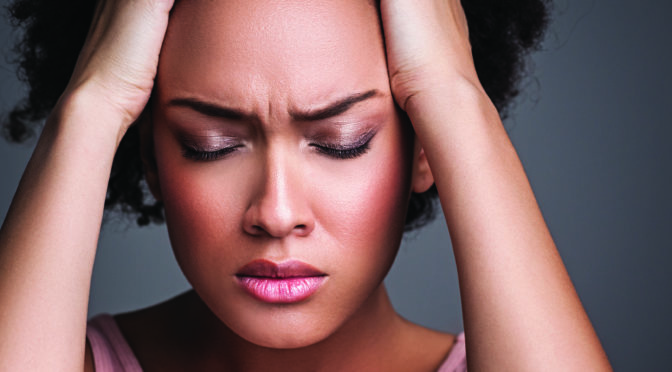Those who suffer from migraines experience severe, debilitating throbbing pain, often occurring on one side of the head. Attacks frequently cause disabling symptoms. Visual disturbances, nausea and vomiting, dizziness, fainting, and severe sensitivity to light, sound, touch, and smell, are common. More than one billion people worldwide are affected by migraines, making it the third most prevalent illness in the world.
As a musician, migraines can significantly curtail your career, especially if you are one of the more than 4 million people who experience chronic migraines, occurring at least 15 times per month. While migraines often go undiagnosed and untreated, it is best to visit your doctor to discuss your headaches, talk about treatment, and consider underlying causes.
Seek immediate medical treatment if you experience an abrupt, severe headache; headache with fever, stiff neck, mental confusion, seizures, double vision, weakness, numbness, or trouble speaking; headache following a head injury; chronic headache that worsens with coughing, movement, or exertion; and new headache pain if you are over age 50.
Tracking Migraine Triggers
Doctors recommend keeping a headache diary. Note when you do and do not have migraines. What activities were you participating in? What did you eat or drink? How much sleep did you get the night before? By discovering what triggers your migraines, you may be able to minimize occurrence. Common migraine triggers include:
- Diet—aged cheeses, salty, processed foods, additives like aspartame and monosodium glutamate (MSG), as well as skipping meals
- Drinks—alcohol, especially wine; and highly caffeinated beverages
- Stress
- Sensori stimuli—bright lights, sun glare, loud sounds, strong smells
- Intense physical exertion
- Changes in environment—weather, barometric pressure
- Lack of sleep, too much sleep, or changes in sleep patterns
- Certain medications, oral contraceptives, vasodilators
- Nonprescription Relief
Over-the-counter pain-relieving medications are most effective when taken at the first signs or symptoms of a migraine. If possible, rest or sleep in a dark room while they take effect. If used too often or for extended periods of time, they can lead to ulcers and gastrointestinal bleeding. Other ways to reduce the pain and instance of headaches include:
- Maintain consistent daily routines, sleep patterns, and meals
- Participate in regular aerobic exercise to reduce tension
- Reduce medications that contain estrogen
- Acupuncture
- Learning to control your physical response to stress through biofeedback or cognitive behavior therapy
- Massage therapy
Prescription Relief
For continued chronic migraines, your doctor may prescribe medications to prevent or relieve the pain. Preventative medications include cardiovascular drugs, tricyclic antidepressants, and anti-seizure drugs. Prescribed pain relievers often include triptans or ergots. All of these medications may produce side effects. It may take some trial and error with your doctor to find what works best for you and your migraines.
For more information on migraine research and treatment visit the website of the American Migraine Foundation (americanmigrainefoundation.org).


